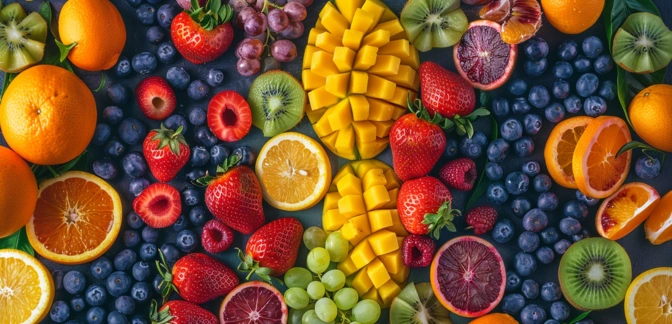Bananas — Nutrients, Health Benefits, And Shopping Tips

Written by Listonic Team
Last update on September 4, 2024
Nutrients
Nutrition facts
Amount per 100 g
Calories
🔥 89 kcal
| Nutrition per: 100 g | Value | % Daily Value* |
|---|---|---|
| Carbs | 23 g | 8.36% |
| Fiber | 3 g | 10.71% |
| Sugars | 12 g | 24% |
| Glycemic Index | 51 | - |
| Protein | 1 g | 2% |
| Sodium | 1 mg | 0.04% |
| Total Fat | 0 g | - |
*The % of Daily Value (DV) tells you how much a nutrient in a serving of food contributes to a daily diet. 2,000 calories a day is used for general nutrition advice.
Bananas are high in vitamin B6 and a good source of vitamin C, potassium, and fiber.
Encyclopedia of Foods. A Guide to Healthy Nutrition
51
🟢 Low Glycemic Index
Key takeaways
Health benefits
- Rich in potassium, which helps maintain healthy blood pressure levels and supports heart health.
- Provides quick energy due to their high carbohydrate content, making them an excellent snack for an energy boost.
- Supports digestive health with their high fiber content, promoting regular bowel movements and a healthy gut microbiome.
- Contains essential vitamins and minerals such as Vitamin C, Vitamin B6, and magnesium, which are important for overall health and well-being.
- Helps maintain electrolyte balance due to their high potassium content, which is crucial for proper muscle function and hydration.
Health risks
- High sugar content relative to other fruits, which can cause blood sugar spikes, particularly concerning for diabetics.
- Possible allergic reactions in some individuals, particularly those with latex allergies, leading to symptoms like itching, swelling, or difficulty breathing.
- Digestive issues such as bloating or gas when consumed in excess, especially in people sensitive to high-fiber foods.
- Potential for overripe bananas to cause digestive discomfort as they can be higher in sugar and potentially ferment in the gut, leading to discomfort.
How to choose bananas
Choose bananas based on when you plan to eat them; look for bright yellow bananas with tiny brown speckles if you want to eat them soon, as these are fully ripe with the sweetest flavor. If you prefer a slower ripening process, opt for greener bananas.
Avoid bananas with black spots or bruises, which indicate they are overripe or damaged. Bananas that appear dull or have a grayish tint are usually cold-damaged and won't ripen properly.

How to store bananas
Bananas are best stored at room temperature until they ripen. To slow the ripening process, place them in the refrigerator; the peel will darken, but the fruit inside will remain fresh. Bananas can be frozen for longer storage, ideal for smoothies and baking.
Refrigeration can cause the banana peel to turn black quickly, though the fruit inside stays fresh. Do not store bananas in sealed plastic bags, as this can trap moisture and promote mold growth. Keeping bananas away from other ethylene-producing fruits can also help manage the ripening speed.
✅ Extra Tip
How long do they last?
Bananas typically last for 2-7 days at room temperature, depending on their ripeness when purchased. To slow down ripening, they can be refrigerated, where the peel will darken but the fruit inside remains fresh for up to 1 week. For longer storage, bananas can be peeled and frozen for up to 2-3 months.
What to do with leftovers?
Leftover bananas can be used in a variety of ways, especially if they are overripe. Mash them into banana bread or muffins for a sweet treat or blend them into smoothies for a creamy texture. They are also great sliced and added to cereal, oatmeal, or yogurt.
Freeze bananas to use later in smoothie bowls or to make banana ice cream by blending frozen chunks until smooth. You can also caramelize banana slices with a bit of sugar and butter for a delicious topping on pancakes or waffles. If you have a lot of bananas, consider making a batch of banana pancakes or incorporating them into a banana pudding or trifle. Bananas can also be used in savory dishes, such as adding them to a curry for a sweet contrast.
👨⚕️️ Medical disclaimer
Discover products from other categories
Listonic Team
Fact-checked
Our editorial team checked this article to make sure it was accurate at the time of publishing it.
Get the top-rated shopping list app

bananas
1 piece







